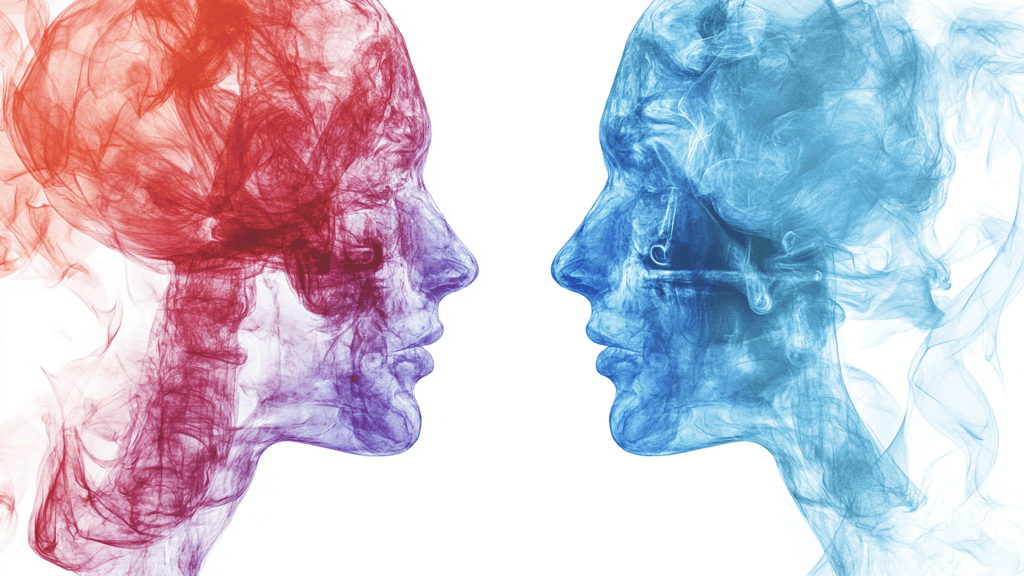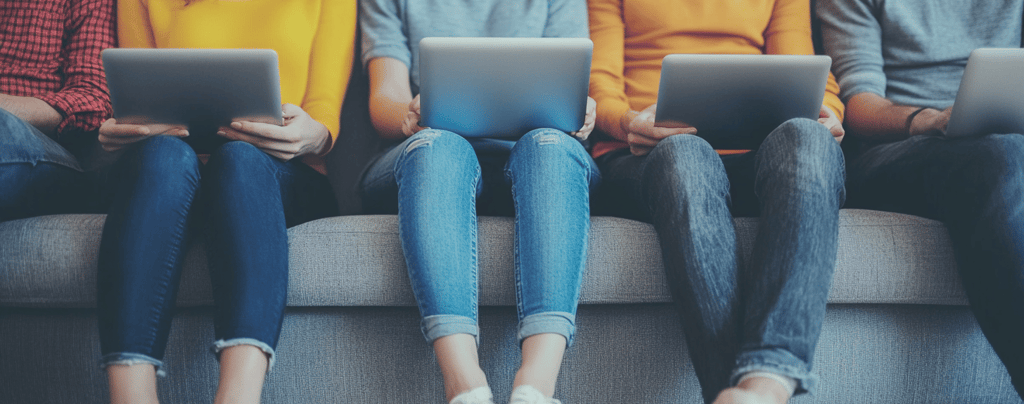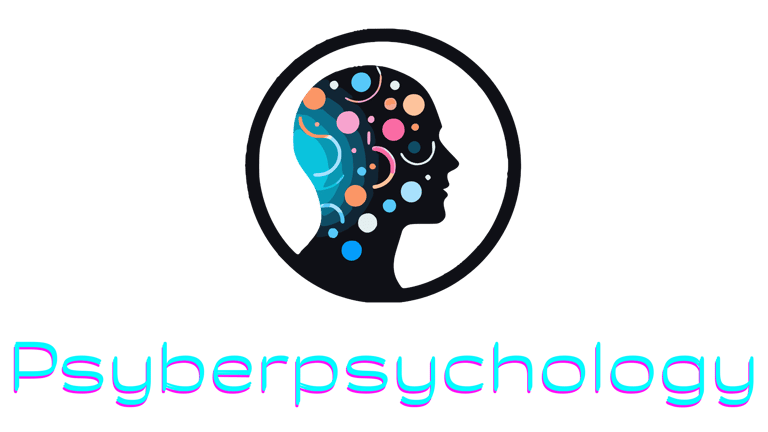The Psychology of Online Communities - How Digital Tribes Shape Behavior and Belonging
MIND & MACHINE
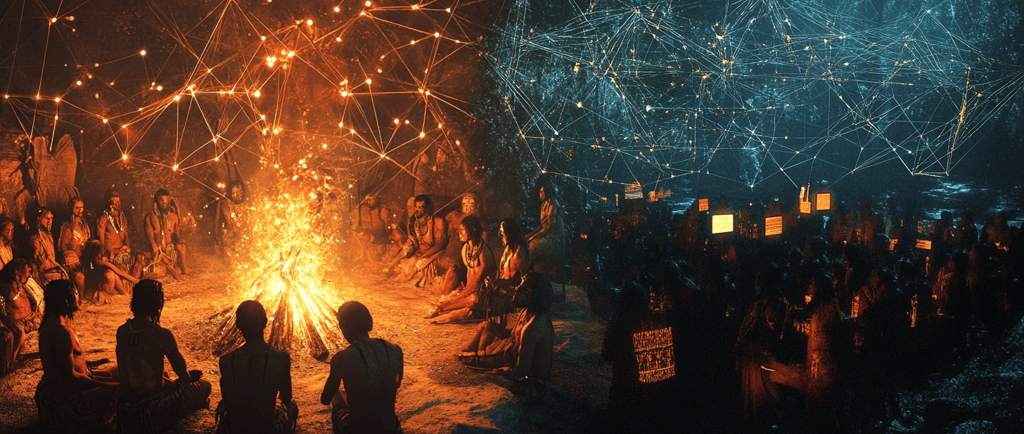

Why Are We Drawn to Online Communities?
When Reddit users banded together in 2023 to protest platform changes, when Discord servers rally thousands around niche interests, or when Facebook groups become lifelines during personal crises, we're witnessing a fundamental human drive playing out in digital spaces: our need for connection and belonging.
This drive isn't new. Psychologist Abraham Maslow positioned "belongingness" as a core human need in his hierarchy, just above physiological and safety requirements. What's changed is how we fulfill this need. Today, a significant portion of our social connections form and flourish online, often among people we've never met face-to-face.
"Humans are fundamentally social creatures," explains Dr. Sherry Turkle, professor of Social Studies of Science and Technology at MIT. "We seek tribes, communities, and groups that affirm our identities and provide us with meaning. The internet hasn't changed this need—it's just provided new avenues for fulfilling it."
Three psychological frameworks help explain our gravitation toward online communities:
Social Identity Theory: Developed by Henri Tajfel and John Turner, this theory suggests that part of our self-concept derives from our membership in social groups. Online communities provide ready-made identities—whether you're a "Redditor," a member of "Film Twitter," or part of "BookTok."
Dunbar's Number: Anthropologist Robin Dunbar proposed that humans can maintain about 150 stable social relationships. Online platforms potentially allow us to expand this number through looser connections and parasocial relationships with content creators.
Belongingness Hypothesis: Psychologists Roy Baumeister and Mark Leary argued that humans have a pervasive drive to form and maintain relationships. Online communities offer unprecedented access to like-minded individuals, regardless of geographic limitations.
Whether joining a gaming Discord, contributing to a specialized subreddit, or participating in a Facebook group for rare plant enthusiasts, we're fulfilling ancient social needs through modern technological means. But what exactly happens to our psychology when we engage in these digital tribes? This is what we'll explore.
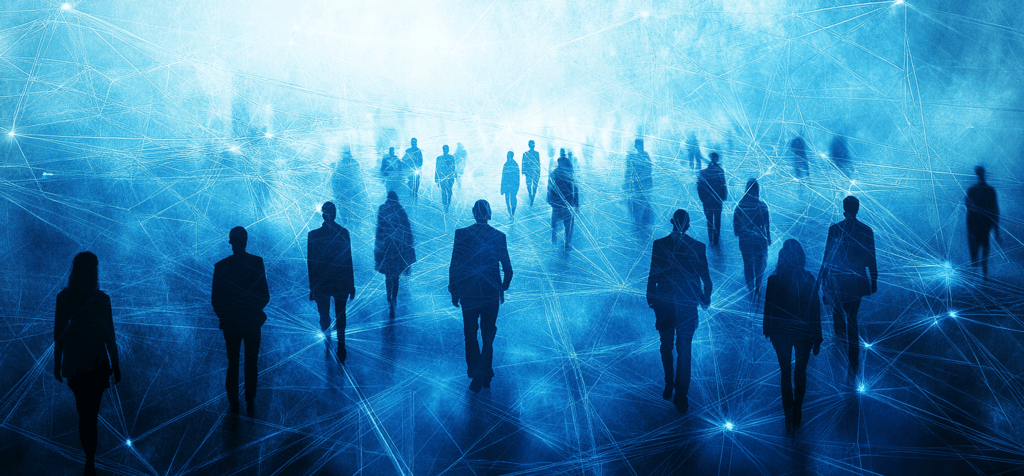

The Psychological Forces That Drive Online Communities
Social Identity & Group Formation
When someone identifies as a "gamer," a "Swiftie," or a "crypto enthusiast," they're engaging in social categorization—a process where individuals sort themselves into groups that become part of their identity. Social psychologists observe that online communities provide pre-packaged social identities that people can adopt, helping them reinforce their sense of self through group affiliation.
This identity formation process occurs through several mechanisms:
Self-categorization: Users actively choose which communities to join based on existing interests or curiosities.
Identity signaling: Members adopt community-specific language, references, and inside jokes that signal belonging.
Depersonalization: Individual characteristics sometimes become less important than group norms and values.
Consider how r/WallStreetBets users refer to themselves as "apes" or how K-pop fans adopt specific fandom names. These linguistic markers strengthen collective identity and signal in-group status.
Research demonstrates that strong group identification correlates with higher self-esteem and well-being—people find meaning and purpose through community membership. This explains why specialized online communities focused on everything from mechanical keyboards to houseplants can become central to members' self-concept.
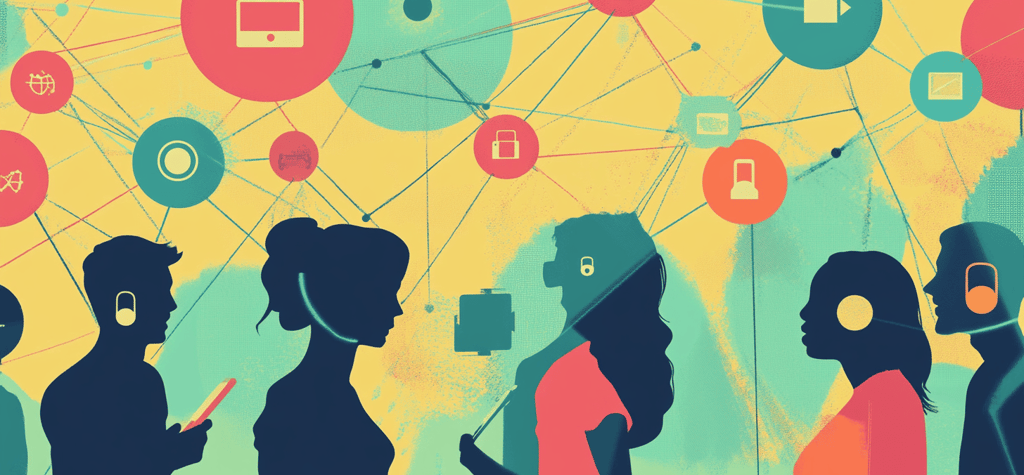

Tribalism & In-Group vs. Out-Group Mentality
Our tendency toward tribalism—favoring those within our group while viewing outsiders with suspicion—is a deeply rooted psychological trait that manifests distinctly in online spaces.
Social psychologists note that the internet doesn't create tribal tendencies but rather amplifies and accelerates these innate human characteristics.
Online communities develop tribal characteristics through:
Shared values and language: Communities develop specialized terminology, memes, and communication styles that differentiate members from outsiders.
Boundary maintenance: Groups actively define who belongs and who doesn't, sometimes through formal rules or informal social norms.
Intergroup competition: Communities often define themselves in opposition to other groups, reinforcing their own cohesion.
This tribal psychology manifests in rivalries between platforms (Reddit vs. Twitter), fandoms (Marvel vs. DC), or ideological communities. While this strengthens within-group bonds, it can lead to dehumanization of outsiders and contribute to online conflict.
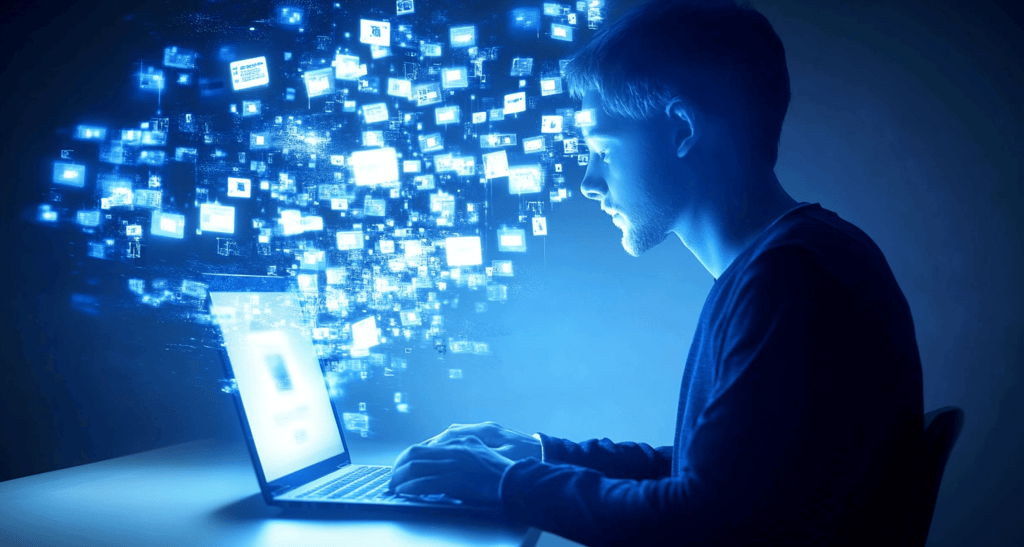

Anonymity & Disinhibition Effect
Perhaps the most distinguishing psychological feature of online communities is how they change our behavior through anonymity and distance from consequences.
Psychologist John Suler identified this as the "online disinhibition effect"—the loosening of social restrictions and inhibitions in online interactions. This effect has two components:
Benign disinhibition: Greater openness, generosity, and vulnerability than in face-to-face interactions.
Toxic disinhibition: Greater hostility, harassment, and boundary violations than in physical spaces.
Cyberpsychologists observe that anonymity online creates a kind of disconnect between our actions and real-world identity, generating both opportunities for authentic expression and risks for harmful behavior.
The mechanisms behind this effect include:
Dissociative anonymity: "No one knows who I really am."
Invisibility: "No one can see me or my physical reactions."
Asynchronicity: "I don't have to deal with immediate responses."
Solipsistic introjection: "I can't see others, so I create their voices in my head."
Minimization of authority: "There are fewer status and power differences online."
These factors explain why people might share deeply personal stories in Reddit's r/OffMyChest or why normally reserved individuals might engage in aggressive arguments on Twitter. The disinhibition effect fundamentally alters our social calculations.
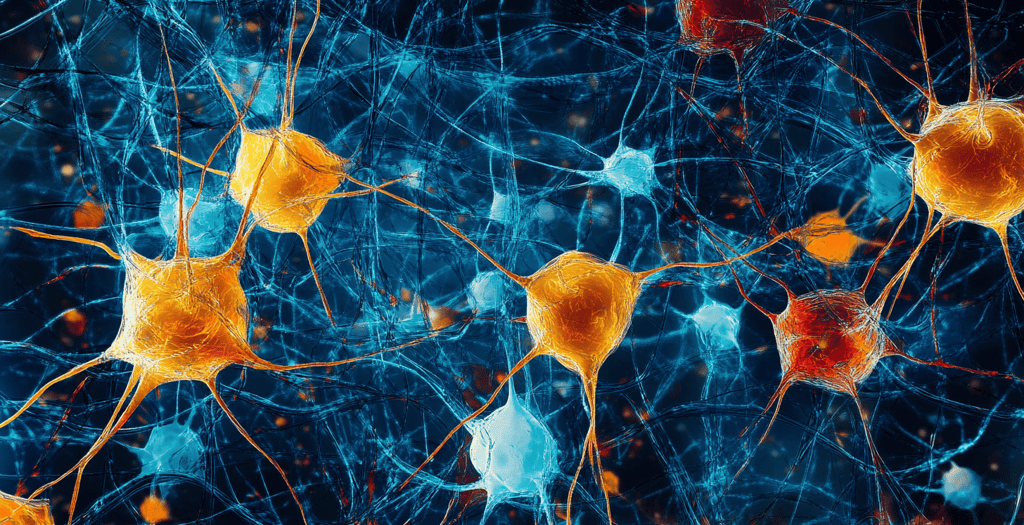

Dopamine and Social Reward Systems
The neurochemical underpinnings of online community engagement center around our brain's reward system—particularly dopamine release triggered by social validation.
Psychiatrists and neuroscientists observe that social media platforms have created highly effective variable reward schedules. When users post content and wait for responses, they experience neurological patterns similar to those of gamblers at slot machines.
Key reward mechanisms in online communities include:
Variable rewards: Unpredictable positive feedback (likes, comments, awards) creates a powerful reinforcement schedule.
Social comparison: Seeing how our contributions measure against others triggers both competitive and affiliative drives.
Recognition: Community acknowledgment of expertise or contributions fulfills status needs.
Reciprocity: The mutual exchange of information, support, or entertainment creates social bonds.
These reward systems explain the addictive nature of many online communities. Specific platform features—Reddit's karma system, Twitter's likes and retweets, Discord's roles and reactions—are deliberately designed to leverage these psychological mechanisms, keeping users engaged and contributing.


The Dark Side of Online Communities
Echo Chambers & Confirmation Bias
One of the most concerning aspects of online communities is their tendency to reinforce existing beliefs while filtering out contradictory information—creating what researchers call "echo chambers."
Researchers studying this phenomenon note that humans naturally seek information confirming what they already believe, and online communities accelerate this tendency by algorithmically and socially filtering out content that challenges users' worldviews.
This phenomenon occurs through several mechanisms:
Algorithmic reinforcement: Recommendation systems show users content similar to what they've previously engaged with.
Social homophily: People tend to connect with others who share their beliefs and values.
Group polarization: Discussion among like-minded individuals often strengthens pre-existing attitudes.
Information cascades: When community members see others endorsing certain information, they're more likely to accept it without question.
Research demonstrates that deliberation in homogeneous groups typically leads to more extreme positions than individual members initially held. This explains why online communities focused on politics, health, or even hobbies often develop increasingly rigid viewpoints over time.
Echo chambers become particularly problematic when they reinforce misinformation or harmful ideologies. Communities like QAnon or certain vaccine-skeptical groups demonstrate how insulated online spaces can maintain beliefs despite contradictory evidence, often by developing elaborate systems to discredit outside information.
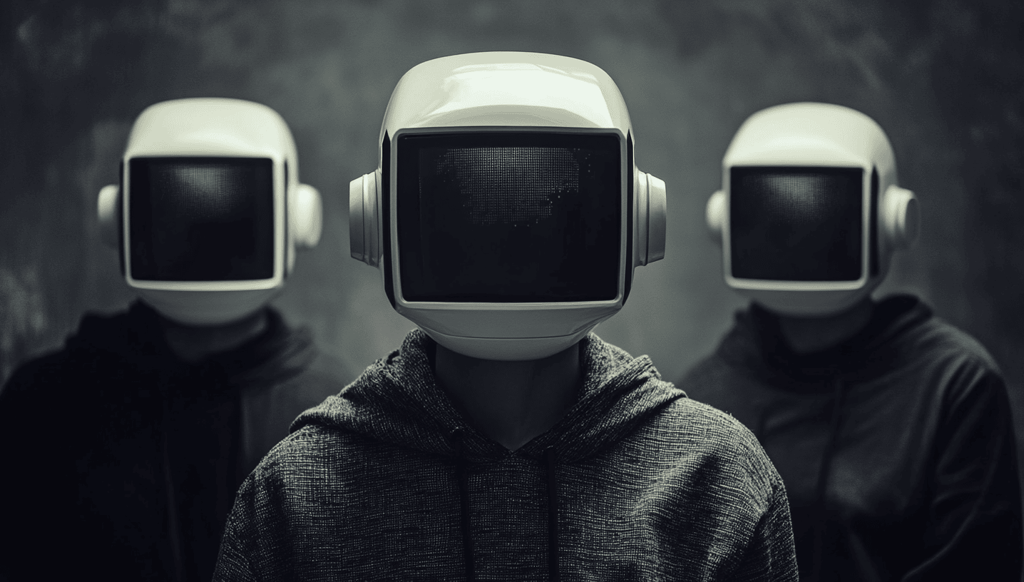

Digital Mob Mentality & Cancel Culture
The psychology of crowds—first studied by Gustave Le Bon in the 19th century—takes on new dimensions in online spaces, where large groups can rapidly form and direct collective action.
Social psychologists observe that social media creates ideal conditions for deindividuation, where people feel anonymous within a larger group, potentially leading to behaviors they wouldn't engage in individually.
Online mob psychology manifests through:
Deindividuation: Individual identity becomes subsumed within the group identity.
Emotional contagion: Anger, outrage, or enthusiasm spreads rapidly across users.
Diffusion of responsibility: Individual accountability decreases as group size increases.
Informational cascades: People make judgments based on the apparent consensus rather than independent evaluation.
These mechanisms explain controversies around "cancel culture," online shaming campaigns, and harassment. When someone is identified as violating group norms—whether a celebrity making an offensive statement or an ordinary person caught in a viral moment—the speed and scale of response can be disproportionate to the original offense.
Research suggests that moral outrage in digital contexts may be amplified because expressing it is less costly than in face-to-face interactions, while potentially offering greater social rewards through likes and shares.
Parasocial Relationships & Cult-Like Behavior
Online communities can foster unusually asymmetrical relationships—particularly between content creators and their audiences. These "parasocial relationships" involve emotional attachment to people we've never met and who typically don't know we exist.
Anthropologists point out that humans evolved in small groups where everyone knew each other. Our brains haven't fully adapted to the one-way relationships we form with online personalities.
The psychology behind these attachments includes:
Perceived intimacy: Creators share personal details, creating an illusion of friendship.
Consistency and reliability: Regular content creates a sense of ongoing relationship.
Idealization: Followers project positive qualities onto creators due to limited information.
Identity incorporation: Fan communities become part of members' social identity.
While most parasocial relationships are benign or even beneficial, they can sometimes develop concerning dynamics. Excessive devotion to influencers, political figures, or thought leaders can resemble cult-like behavior, characterized by:
Uncritical acceptance of a leader's statements
Hostility toward critics or outsiders
Sacrificing personal resources (time, money, relationships) for the community
Identity fusion where individual and group identity become inseparable
The case of OnlyFans creators who cultivate emotional dependency, cryptocurrency communities with messianic leaders, or political groups with absolutist devotion illustrate how online parasocial relationships can sometimes cross into problematic territory.
The Positive Impact of Online Communities
Support Groups & Mental Health Benefits
Despite the potential pitfalls, online communities provide unprecedented access to social support—particularly for individuals with rare conditions, stigmatized identities, or limited local resources.
Media psychologists emphasize that online support groups democratize access to community. People with insufficient local support options can connect with thousands of others experiencing similar challenges.
Research consistently shows several benefits from these communities:
Reduced isolation: Connecting with others who share similar experiences decreases feelings of being alone or abnormal.
Informational support: Communities share practical advice, resources, and strategies.
Emotional validation: Having experiences acknowledged and understood by others who truly "get it."
Identity affirmation: Finding community with others who share marginalized or minority identities.
Studies demonstrate that young people with mental health conditions often find valuable support online. Communities like r/Depression, eating disorder recovery forums, or groups for rare medical conditions provide resources that complement professional treatment.
For many individuals—especially those with mobility limitations, chronic illness, or who live in remote areas—online support groups aren't merely helpful but essential to their wellbeing.
Crowdsourced Knowledge & Collective Intelligence
Online communities harness the wisdom and expertise of diverse individuals to create knowledge resources that would be impossible through individual effort.
Researchers studying collective intelligence observe that platforms like Wikipedia and Stack Overflow represent a novel form of knowledge creation. These systems combine human expertise with technological infrastructure to create resources more comprehensive than any single expert could produce.
This collective intelligence operates through:
Aggregation of diverse perspectives: Communities combine viewpoints that wouldn't normally interact.
Specialization and division of cognitive labor: Members contribute in their areas of expertise.
Iterative improvement: Content undergoes continuous refinement through community feedback.
Meritocratic evaluation: The best contributions rise through community validation.
The success of Wikipedia—now more comprehensive than any traditional encyclopedia—demonstrates these principles in action. Similarly, sites like GitHub for coding, Reddit's r/AskHistorians for expert historical knowledge, or patient communities that have helped identify new symptoms of medical conditions showcase how online collective intelligence can create valuable resources.
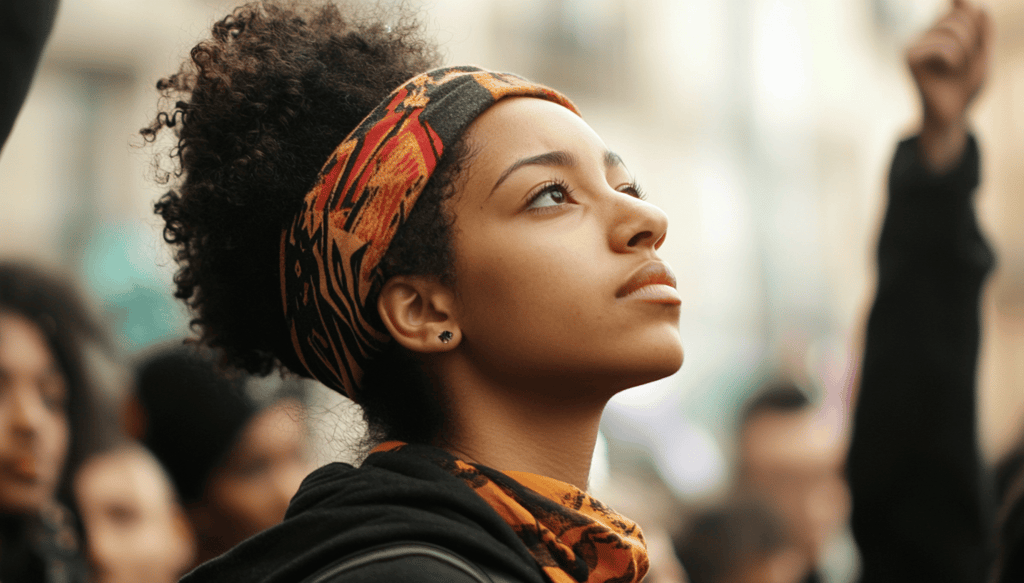

Activism & Social Change
Online communities have transformed how social movements organize, spread, and influence policy and culture.
Sociologists studying digital activism note that these tools have fundamentally altered power dynamics between institutions and ordinary people. Modern movements can rapidly scale without requiring traditional organizational infrastructure.
This transformation works through several mechanisms:
Rapid mobilization: Communities can quickly organize large-scale actions.
Narrative control: Marginalized groups can share perspectives that bypass traditional media gatekeepers.
Resource pooling: Communities can collectively fund causes through crowdfunding or coordinate distributed volunteer efforts.
Reduced participation costs: "Micro-activism" allows many small contributions to create significant impact.
Examples abound: #MeToo transformed conversations around sexual harassment, Black Lives Matter originated as a hashtag before becoming a global movement, and environmental activism increasingly coordinates through online communities. During crises like natural disasters, online communities often organize faster than official channels, connecting resources with needs.
While "slacktivism" criticisms highlight the limitations of online-only engagement, research shows that digital activism often serves as an entry point to deeper involvement in social causes.


Conclusion: The Continuing Evolution of Digital Tribes
Online communities represent one of the most significant social innovations in human history—enabling connection across geographical, social, and temporal boundaries in ways previously impossible. They simultaneously reflect ancient human tendencies toward tribalism and belonging while creating entirely new social phenomena.
As we've explored, these digital tribes profoundly shape our psychology:
They form and reinforce our identities
They alter our behavior through anonymity and social validation
They can both broaden and narrow our perspectives
They provide unprecedented access to support and knowledge
They enable new forms of collective action and organization
The challenges these communities present—echo chambers, mob behavior, addiction, and manipulation—require thoughtful responses from designers, researchers, policymakers, and users themselves. But their benefits—connection for the isolated, knowledge creation, and empowerment of marginalized voices—represent genuine social progress.
As online communities continue evolving with new technologies and governance models, their fundamental psychological dynamics will likely remain. Understanding these dynamics gives us the opportunity to shape digital spaces that bring out the best rather than the worst in human social tendencies.
The internet is still young, we're in the early stages of learning how to build healthy online social environments. The communities we create today will shape how future generations understand what it means to be social.
Have you ever been part of an online community that shaped your views or behavior? Share your thoughts in the comments!
The Future of Online Communities: Where Are We Headed?
AI and Virtual Reality Communities
The next frontier of online communities integrates artificial intelligence and immersive technologies, potentially transforming how we experience digital connection.
Researchers studying virtual human interaction note that VR addresses one of the key limitations of text-based communities—the absence of nonverbal cues. Virtual reality can recreate subtle social signals that build trust and empathy in ways text cannot.
Several emerging trends suggest where online communities are heading:
Embodied presence: VR social platforms like VRChat and Horizon Worlds create spaces where presence and physical interaction are simulated.
AI-facilitated connection: Algorithms increasingly match people based on compatibility rather than just shared interests.
AI community members: Bots and AI entities are becoming community participants, not just tools.
Augmented reality gatherings: Blending physical and digital social contexts through AR.
These technologies may address current limitations in online interaction. Studies show that VR conversations activate neural patterns more similar to face-to-face interaction than text-based communication, potentially reducing misunderstandings and conflict while increasing empathy.
However, these technologies also raise concerns about deepening digital addiction, creating more convincing filter bubbles, and widening the gap between those with and without access to advanced technology.
Decentralized Social Networks and Online Governance
As concerns about platform power grow, alternative models for online community organization are emerging.
Media studies researchers observe that Web3 and decentralized technologies aim to return control to users. The key question is whether these technologies can develop governance systems that avoid both corporate control problems and mob rule.
Key developments in this space include:
Blockchain-based communities: DAOs (Decentralized Autonomous Organizations) create collectively owned and governed online spaces.
Platform cooperatives: User-owned alternatives to commercial social platforms.
Community constitution systems: Formal governance structures for online communities.
Algorithmic transparency: Increasing pressure for understandable and accountable content moderation.
These experiments respond to growing dissatisfaction with corporate platform governance. Research shows declining trust in major social media companies, with users concerned about both restrictive content moderation and insufficient protection from harassment.
The challenge remains finding models that balance freedom of expression with protection from harm, while creating sustainable economics that don't rely on surveillance capitalism.
Ethical Considerations: Fostering Healthier Online Discourse
As awareness of online community psychology grows, so do efforts to design for healthier social interaction.
Digital ethicists note that first-generation social platforms optimized for engagement regardless of quality, while next-generation platforms need to prioritize human wellbeing and social health.
Promising approaches include:
Friction by design: Intentional slowdowns that encourage reflection before posting.
Positive incentive structures: Rewarding constructive contributions rather than merely engaging ones.
Diversity by design: Systems that intentionally expose users to varied perspectives.
Contextual identity: Moving beyond binary anonymous/identified models to contextually appropriate identity disclosure.
Digital literacy education: Teaching users to navigate online communities critically and ethically.
Experiments like Twitter's "read before retweeting" prompt, Reddit's community-specific moderation, and various alternative platforms demonstrate these principles in action. Research shows that small design changes can significantly impact community behavior—one study found that simply reminding users of shared human values reduced hostile interactions by 15%.
Information science researchers emphasize that online communities aren't inherently toxic or beneficial—their cultures emerge from interactions between human psychology, platform design, and community governance. Understanding these factors enables designing for more positive outcomes.
